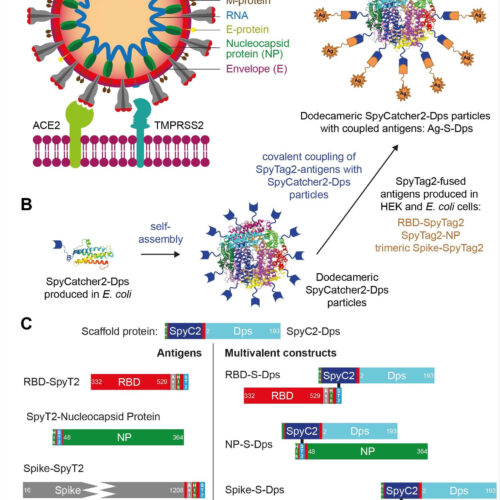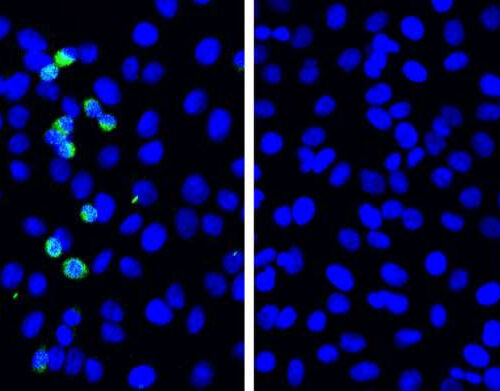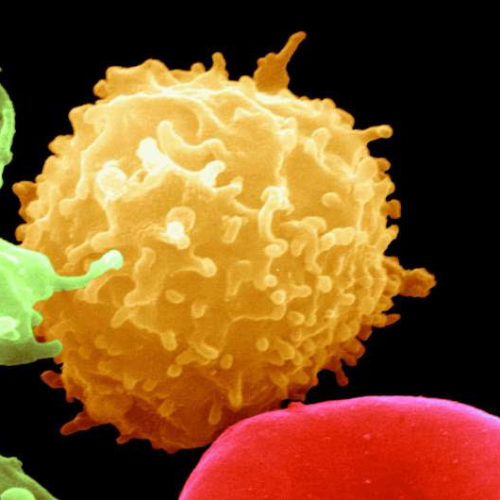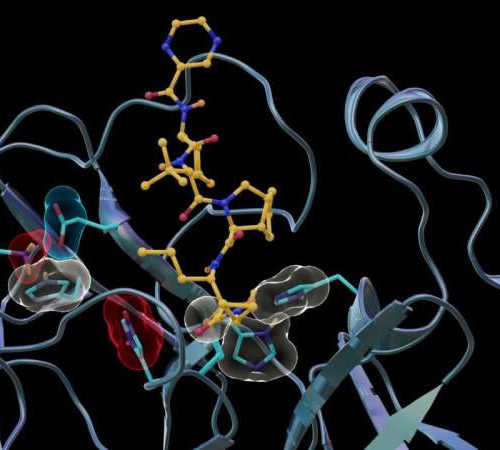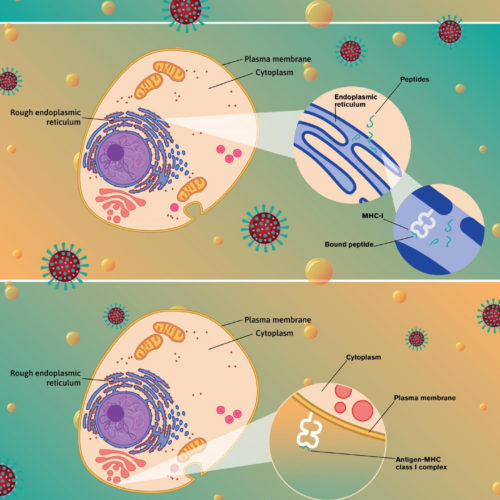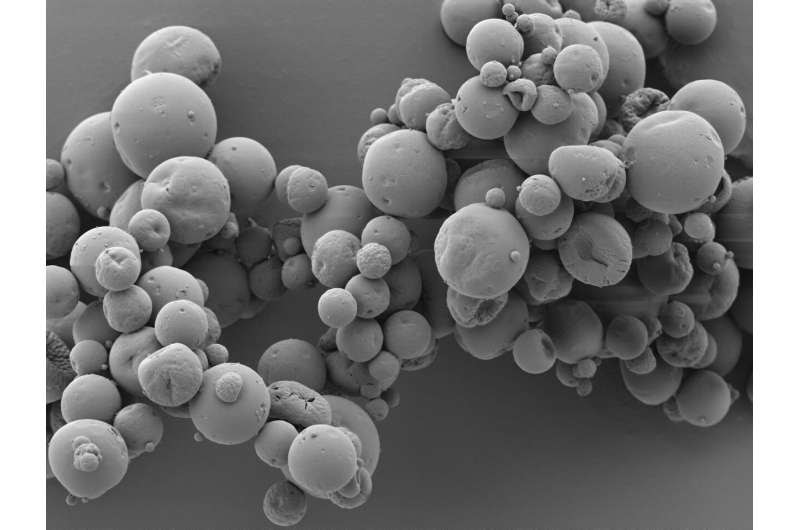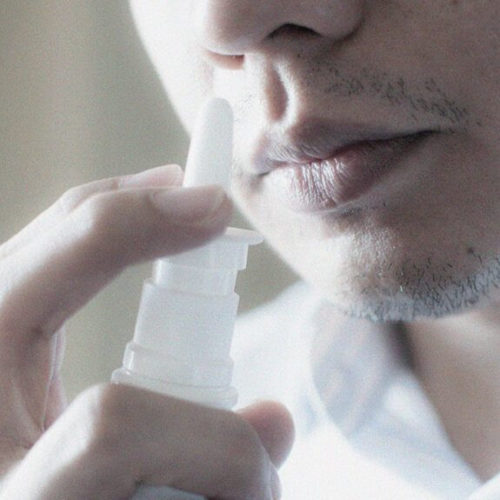By Sally Robertson, B.Sc. May 20 2021 Researchers in the UK have developed a protein-based subunit vaccine directed against severe acute respiratory syndrome coronavirus 2 (SARS-CoV-2) that could serve as an alternative to the mRNA-based vaccines currently approved for protecting against coronavirus disease 2019 (COVID-19). The team – from the University of Liverpool and the MRC Laboratory of...
Tag: <span>SARS-CoV-2</span>
A novel defense mechanism for SARS-CoV-2 discovered
by Hokkaido University SARS-CoV-2 replication is suppressed by RIG-I. When pulmonary cells that do not express RIG-I (left) are exposed to SARS-CoV-2, viral spike proteins (green) are detected as soon as 5 days (72 hours) after exposure. In normal cells (right), SARS-CoV-2 replication is suppressed (Taisho Yamada, et al. Nature Immunology. May 11, 2021). Credit: Taisho...
Interleukin-33 involved in immunity to SARS-CoV-2
by Max Planck Society White blood cells play an important role in the defense against pathogens. Credit: MPI f. Developmental Biology/ Jürgen Berger Early in the pandemic, a team of immunologists from the Max Planck Institute of Immunobiology and Epigenetics in Freiburg and physicians from the University of Freiburg Medical Center joined forces to learn more...
Neutrons reveal unpredicted binding between SARS-CoV-2, hepatitis C antiviral drug
by Oak Ridge National Laboratory Neutron scattering experiments show electric charges, shown in red, blue and gray, in the SARS-CoV-2 main protease site where telaprevir binds to the structure. The experiments provide critical data for the design of small-molecule drugs to treat COVID-19. Credit: Jill Hemman and Michelle Lehman/ORNL, U.S. Dept. of Energy Scientists have found...
Variances in critical protein may guide fate of those infected with SARS CoV-2
ARIZONA STATE UNIVERSITY IMAGE: Graphic showing the chain of events when a cell is infected with a virus like SARS CoV-2. Within a living cell, proteins derived from pathogens like viruses are cut into fragments in the proteosome. These fragments then migrate through a series of cell structures, including the endoplasmic reticulum and the Golgi...
SARS-COV-2 ANTIBODIES LAST DAYS FOR SOME, DECADES FOR OTHERS
Antibodies against SARS-CoV-2 wane at different rates, lasting for days in some people, while remaining in others for decades, researchers have found. The new study shows that the severity of the infection could be a deciding factor in having longer-lasting antibodies. People with low levels of neutralizing antibodies may still be protected from COVID-19 if...
A general influenza vaccine
by University of Konstanz Biodegradable microspheres that are produced via spray drying. They contain an influenza virus antigen and an immunostimulating substance. The image was obtained by electron microscopy, enlarged 3,000 times. Credit: Dennis Horvath, University of Konstanz New vaccination method for lasting protection against all known influenza mutations in preclinical testing phase—potentially effective also against...
Five-Day Course of Oral Antiviral Appears to Stop SARS-CoV-2 in Its Tracks
Heather Boerner March 08, 2021 A single pill of the investigational drug molnupiravir taken twice a day for 5 days eliminated SARS-CoV-2 from the nasopharynx of 49 participants. That led Carlos del Rio, MD, distinguished professor of medicine at Emory University in Atlanta, Georgia, to suggest a future in which a drug like molnupiravir could be taken in...
Scientists inactivate SARS-CoV-2 by ‘tricking’ it with peptides
Share on Pinterest New research suggests a peptide-based nasal spray could inactivate SARS-CoV-2 before it infects cells. Karl Tapales/Getty Images Previous research has shown SARS-CoV-2 causes an infection in a person by entering the body and binding its spike proteins to ACE2 receptors on a cell’s surface. Researchers have designed peptides that resemble the ACE2 receptors targeted by the viral spike proteins....
NCI study finds people with SARS-CoV-2 antibodies may have low risk of future infection
NIH/NATIONAL CANCER INSTITUTE People who have had evidence of a prior infection with SARS-CoV-2, the virus that causes COVID-19, appear to be well protected against being reinfected with the virus, at least for a few months, according to a newly published study from the National Cancer Institute (NCI). This finding may explain why reinfection appears...

